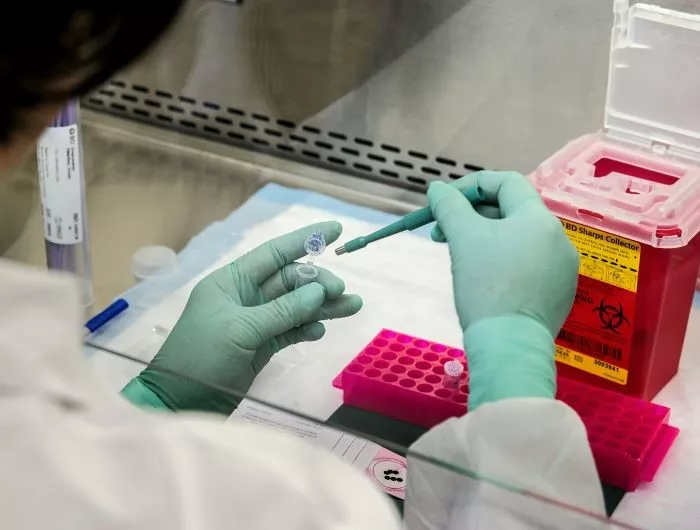The Centers for Disease Control and Prevention estimates that 70 percent of modern medical decisions depend on laboratory test results, a staggering statistic that underscores the importance of the accuracy and reliability of today's laboratory tests for public health. However, recent events undermine our confidence in many of these tests.
The proliferation of laboratory-developed tests
Major news outlets have extensively covered scandals such as Elizabeth Holmes’s Theranos, in which she was able to market fraudulent lab tests through a long-standing loophole in FDA regulation. The loophole applied to tests developed by and used within a single lab, called laboratory-developed tests (LDTs). These tests, sometimes called “send-out” tests, are ones in which samples are sent to another location for processing instead of being conducted on the spot.
LDTs have proliferated in volume and complexity in recent decades and touch nearly all aspects of modern health care. In 2022, The New York Times spotlighted the potential harms of inaccurate non-invasive prenatal tests, a type of LDT commonly used in pregnant people to screen for fetal genetic abnormalities. These tests have some clinical merit; the American College of Obstetricians and Gynecologists recommends offering this type of screening test for more common genetic conditions (e.g., Down’s Syndrome) but recommends against using them for other, rarer conditions because it is not clear if these tests are reliable in those cases. Other common examples of LDTs include those used for infectious diseases (including COVID-19), cancer, and genetic testing.
Why laboratory-developed tests are still not properly regulated
In 1976, the Medical Device Amendments to the Federal Food, Drug, and Cosmetic Act gave the FDA the authority to regulate medical devices, including in vitro diagnostic tests (IVDs), of which LDTs are a subset. However, LDTs of the 1970s were far simpler and less common than they are today. The FDA chose to exercise “enforcement discretion” over LDTs, meaning they decided not to regulate them at the time, despite their authority to do so. This regulatory vacuum has facilitated the growth of the large LDT market that exists today.
Of course, both the FDA and industry are aware of this regulatory loophole, and the FDA has been trying to close it for decades. In addition to efforts to exercise its authority over LDTs in the 1990s and early 2000s, the FDA released a draft guidance for the oversight of LDTs in 2014, a proposal that was ultimately withdrawn due to industry and Congressional pressure. The FDA has continued to highlight its concerns about these tests in the intervening years, as evident in a 2015 report outlining 20 problematic LDTs and a 2017 discussion paper in response to the resistance to its previously proposed guidance. Beginning in 2020, the FDA worked with Congress and other stakeholders to craft the VALID Act, a law that would have created a new framework for FDA oversight of all IVDs, including LDTs. Despite CSPI’s calls for action, this bill has failed to pass in Congress.




